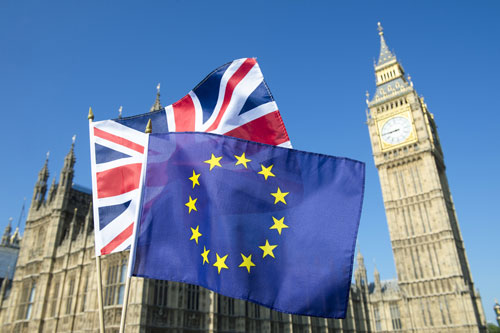"The British fashion industry, over the past two years and nine months, has been preparing for an unforeseen future. As the UK voted to leave the European Union, a range of fashion and footwear businesses across the UK including manufacturers, brands, agencies and retailers are adopting various measures to mitigate the aftereffects of this exit."
 The British fashion industry, over the past two years and nine months, has been preparing for an unforeseen future. As the UK voted to leave the European Union, a range of fashion and footwear businesses across the UK including manufacturers, brands, agencies and retailers are adopting various measures to mitigate the aftereffects of this exit. British multinational clothing brand, Next Fashion, has actively voiced its discontent over the uncertainty looming over Brexit. Not sure of its impact on customers, the brand plans to remain flexible and respond to the changes.
The British fashion industry, over the past two years and nine months, has been preparing for an unforeseen future. As the UK voted to leave the European Union, a range of fashion and footwear businesses across the UK including manufacturers, brands, agencies and retailers are adopting various measures to mitigate the aftereffects of this exit. British multinational clothing brand, Next Fashion, has actively voiced its discontent over the uncertainty looming over Brexit. Not sure of its impact on customers, the brand plans to remain flexible and respond to the changes.
Alternate supply chain, new warehouse mitigate effects
Another clothing brand Joules shipped around 90 per cent its products to the EU markets a few weeks prior to the Brexit date. The brand also made a detailed plan to mitigate disruptions by finding alternative routes to avoid delays to its shipments. It also plans to open a warehouse in Holland with a third party supplier so that it can move its products for the European market into the EU by passing the UK. The brand is worried if Brexit is delayed by a couple of months, it will have to repeat the entire stock management process. Also the volatile currency rates are likely to increase the costs of goods in the market.
the Brexit date. The brand also made a detailed plan to mitigate disruptions by finding alternative routes to avoid delays to its shipments. It also plans to open a warehouse in Holland with a third party supplier so that it can move its products for the European market into the EU by passing the UK. The brand is worried if Brexit is delayed by a couple of months, it will have to repeat the entire stock management process. Also the volatile currency rates are likely to increase the costs of goods in the market.
Increasing stocks
English Fine Cottons is facing price pressures as the brand increased its stock position by around 10-15 per cent. The uncertainty of the situation is also forcing it to defer plans of altering the supply chain Charles Clinkard has been running a Brexit no-deal contingency plan for nearly 12 months and most things that they could take action on have been done. For example, the brand has forward-bought currency through until the end of Spring 20. As a precaution it also stocked around 87 per cent of spring ’19 requirement before March 29 to avoid any shortages on the stock side.
Decentralising operations
Maternitywear retailer Seraphine plans to de-centralise its UK distribution centre and open another one in either France or Belgium. The brand, which has reviewed the situation deeply, is not ready to take any action unless necessary as it would incur a significant start-up cost of about €250,000 (£214,282)
Swedish brand Gant has increased its stock postion in UK warehouse. In case of a no-deal Brexit, the brand plans to move its distribution to Germany. Besides, it has also informed its employees to register for UK citizen status.
Becoming a custom-accredited warehouse will enable men’s and children’s wear brand house Douglas & Grahame to manage imports and exports, VAT and duty in a more efficient way. The brand will also open another warehouse in either Dundalk or Dublin which will allow it to operate within the Republic more efficiently.












